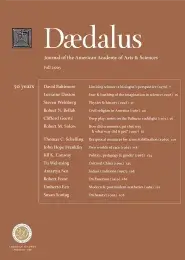Limiting science: a biologist’s perspective (1978)
Contemporary research in molecular biology has grown up in an era of almost complete permissiveness. Its practitioners have been allowed to decide their own priorities and have met with virtually no restraints on the types of work they can do. Viewed as a whole, the field has not even met with fiscal restraints because, relative to “big science,” molecular biology has been a relatively cheap enterprise.
Some of the funds that fueled the initial, seminal investigations in molecular biology were granted because of the medical implications of work in basic biology. Most continue to come from agencies concerned with health. Although basic research in biology has yet to have a major impact on the prevention and treatment of human disease, a backlash already seems to be developing in which various groups in our society question whether the freedom that has characteristically been granted to research biologists by a permissive public requires modification. Among the numerous elements prompting this questioning are impatience with the lack of practical results, and fears that direct hazards might result from the experimentation, that basic research may not be an appropriate investment of significant funds, and that dangerous new technologies may flow from discoveries in basic biology. Lay critics as well as a few members of the profession have argued that molecular biologists should concentrate their efforts in certain areas of research, like fertility mechanisms, while other areas, like genetics or aging, are possibly dangerous and certainly not worthy of financial support from the public. These critics believe that they can channel contemporary biology to fit their own conception of appropriate research.
I wish to argue that the traditional pact between society and its scientists, in which the scientist is given the responsibility for determining the direction of his work, is a necessary relationship if basic science is to be an effective endeavor. This does not mean that society is at the mercy of science, but rather that society, while it must determine the pace of basic scientific innovation, should not attempt to prescribe its directions.
. . .
